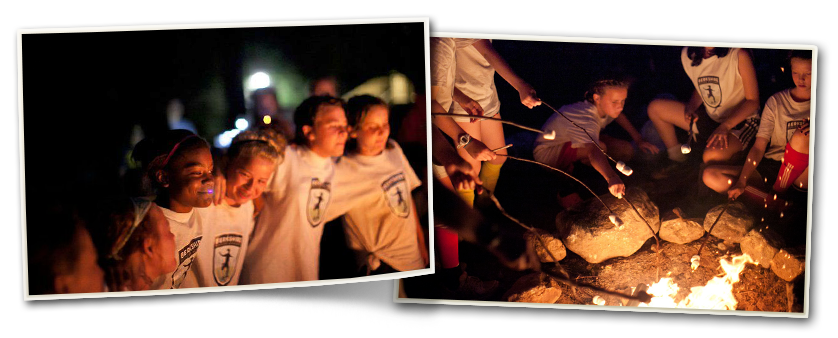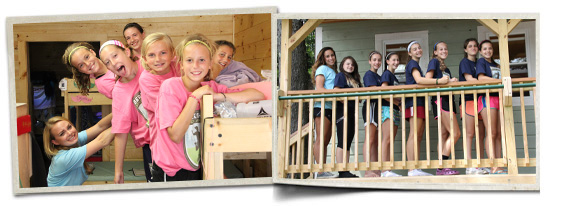
Homesickness: How to prepare your child for their first overnight camp experience
Thinking of sending your child away for their first time to sleepaway camp? This can be scary and provoke many emotions not only in a child but also a parent. ACA, the American Camping Association, has done much research and written articles that can help both parents and children overcome homesickness. ACA defines homesickness as a “normal feeling that occurs as a result of separating from home and loved ones”. Here are some helpful facts from ACA’s article, “How to Choose a Camp: Homesickness”.
Face the facts:
- Research shows approximately 96% of campers that go away to camp for two or more weeks will experience homesickness at least once
- Almost all kids (and adults) experience homesickness when away from home
- Feelings simply vary in intensity
Factors:
- Little experience away from home
- Low expectations of camp
- Feeling forced to go away to camp
- Unsure if adults will be there to help/support them at camp
- Limited practice coping with negative emotions
- Parents express anxiety
Prevention:
- Select camp together, then plan & pack together
- Practice being away from home
- Use coping strategies during practice separation
- Prepare pre-stamped, pre-addressed envelopes
One of the most important things you can do before sending your little one away is not offer them a “pick up deal.” Chances of them coping with homesickness will be significantly reduced if they have the option to go home. The child that stays and overcomes any amount of homesickness gains something so important, they get to say “I did it!” The feeling they will get from overcoming something that seemed rather impossible will be priceless. Not to mention the memories and friendships they will gain from the experience.
All of these preventative measures can help ensure a more seamless transition for your child as they embark on their first time overnight camp experience. The American Camping Association (ACA) publishes research in a variety of fields related to youth development that overlap in the summer camp experience. One the guide below of do’s and don’ts is from an article posted on the ACA’s website.
- DO encourage independence throughout the year. Practice separations, such as sleepovers at a friend’s house, can simulate the camp environment.
- DO involve your child in the process of choosing a camp. The more that the child owns the decision, the more comfortable the child will feel being at camp.
- DO discuss what camp will be like before your child leaves. Consider role-playing anticipated situations, such as using a flashlight to find the bathroom.
- DO pack a personal item from home, such as a stuffed animal or family photo.
- DO trust your instincts. While most incidents of homesickness will pass in a day or two, approximately 7 percent of the cases are severe. If your child is not eating or sleeping because of anxiety or depression, parents should work with the camp director and other camp staff to evaluate the situation.

- DON’T plan anything significant or extravagant during the week(s) that your camper is away. Being homesick is hard enough, missing out on Grandma visiting makes it harder.
- DON’T bribe. Linking a successful stay at camp to a material object sends the wrong message. The reward should be your child’s new found confidence and independence.
- DON’T plan an exit strategy. If a “rescue call” comes from the child, offer calm reassurance and put the time frame into perspective.
- DON’T feel guilty about encouraging your child to stay at camp. For many children, camp is a first step toward independence and plays an important role in their growth and development.
- DON’T make your child feel like a failure if their stay at camp is cut short. Focus on the positive and encourage your child to try camp again next year.
The Berkshire Soccer Academy a member of the ACA and voluntarily participates in their accreditation program as an accredited camp. This ensures that a high caliber of standards in youth development are carried out among accredited members. As coaches and camp professionals this organization is important for many reasons.
Related Content:



